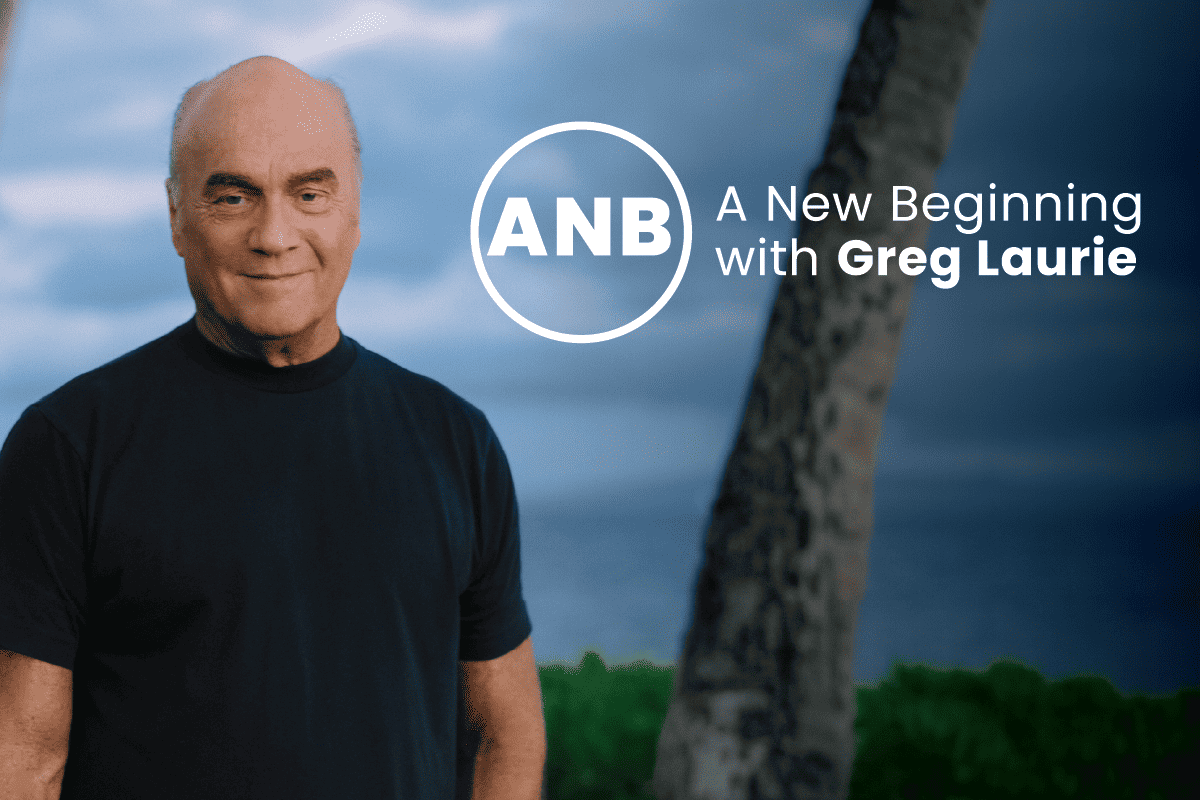When Billy Graham started World Wide Pictures in 1950, he had only been a known entity on a national stage as a crusader for Christ for a few months. The audacity of breaking new ground not only in the faith-based community but the entertainment industry as well is what made Billy Graham a visionary of epic proportions. Even though most of his movies were seen in churches or “four-walled” at the occasional independent movie house or on television, it was, nonetheless, a bold venture for a preacher.
World Wide Pictures built its own sound stages and post-production facilities in Burbank, California, literally a block away from the Walt Disney Studios. In all, it produced more than two hundred dramatic and documentary films, including some classics like The Restless Ones (1965), The Hiding Place (1975), and Joni (1979). They also produced A Time to Run (1973), filmed during the Jesus Movement days and served as the film’s backdrop.
The First Billy Graham Evangelistic Film
Wisely, they started small. World Wide Pictures’ first feature film, Mr. Texas (1951), was a low-budget feature about a professional rodeo rider (Redd Harper) who attends a Crusade in Fort Worth, Texas and ultimately receives Christ. It did surprisingly well. For Billy to start a Christian film studio at this time was nothing short of revolutionary. He was taking a huge risk, and it was not without controversy.
The company couldn’t compete with the major studios, and they were keenly aware of their limitations, so they determined to be clever in their distribution. Some of the films had limited theatrical releases, but most were shown on national television in time slots that normally went to Graham’s Crusade broadcasts. Because of their unique angle of presenting the gospel in a new and creative way, these films led to countless decisions for Christ over several decades.
That said, the majority of other old school Christian films were not stellar productions. They had a reputation for being produced on shoestring budgets, delivered terrible performances, and lacked quality story structure. People watched them to support the church, not necessarily to be entertained. Unfortunately, that was a criticism that followed the Christian entertainment industry for decades. That isn’t the case any longer.
Walking Through the Door Graham Opened
Christian films today are big business, are afforded bigger budgets, and draw better known actors. In the recent film I co-produced called Jesus Revolution, Emmy and Tony Award-winning actor Kelsey Grammer stars as Pastor Chuck Smith. I dare say if faith-based films were welcomed by Hollywood, he would easily be nominated for an Academy Award in this performance. And it’s helmed by Jon Erwin, a director that established stars, such as Jon Voight, Dennis Quaid, Anna Paquin, Zachary Levi, and Patricia Heaton, to name a few.
Today, Christian films are a regular part of our culture, with some doing impressive numbers, as evidenced by 2004’s The Passion of the Christ. The film, directed by Mel Gibson, was the fifth highest grossing film of that year, with a total take of $612 million. Even more important than the box office numbers is the fact that The Passion of the Christ put distributors on notice that there was a burgeoning industry: the faith-based film. Today, distributors are quite open to this genre—but their eyes are always on the money.
I am convinced movies could be the new form of evangelism. I have been preaching and leading crusades for several decades. These efforts of Harvest have reached 6 million people in person with the gospel, which is an incredible blessing. But imagine the scope of the audience for a feature film! We have been told that when Jesus Revolution hits movie theaters on February 24, it could reach as many as 10 million viewers, and that number could climb to 100 million when it streams on digital platforms. There is no doubt this is the most effective thing we’ve ever participated in.
Jon Erwin approached me about making this film over seven years ago, and while I thought it was a great idea, I wasn’t sure it was going to happen. The journey has been long and challenging. I had my doubts about whether the right people would really buy in. Sure, I knew we had something special, but it took some time for me to believe that anyone else would catch the vision. And even as I dared to dream, it still took time for me to understand the full scope of the potential.
I couldn’t have hoped for a better team than Jon and his co-director Brent McCorkle to tell this story visually. They did a magnificent job of weaving together a tapestry of so many individual stories to tell the tale of the largest public movement of the Holy Spirit in the 20th Century.
What Changed My Perspective on Evangelism
There was also a gestation period with me as well. In 2017, Jon and Ben Smallbone co-directed Steve McQueen: American Icon based on my book called Steve McQueen: The Salvation of an American Icon. I wanted to bring the faith story of cinema’s “King of Cool” to the fore in a feature documentary. It was a surprise success—the third biggest film in America—on the night it opened.
But COVID-19 changed everything, including the viewing habits of people around the world.
In September 2020, for the first time in three decades, Harvest was not able to hold its annual crusade at Angel Stadium because of the pandemic. So, we pivoted. Instead of people coming to us, we decided to go to them. We held the event online, and the centerpiece of that year’s “cinematic crusade” was a film called A Rush of Hope: Find Answers to Life’s Questions. It was created in partnership with the Erwin Brothers’ Kingdom Story Company and featured a presentation of the gospel from me, outtakes from Erwin Brothers faith-based films such as I Still Believe, Woodlawn, and I Can Only Imagine. It also included performances by artists including Jeremy Camp, for KING & COUNTRY, and J. Michael Finley, a Broadway actor and singer who brilliantly played the role of Bart Millard in I Can Only Imagine.
We shot the 60-minute movie cinematically so that it was visually pleasing, artistic, and similar to the style and quality people were used to. It was wildly successful and viewed by almost 2 million people, which far surpassed all our expectations. Even though there was some expense involved, it was nothing compared to holding a large-scale crusade. That exercise also opened my eyes from an evangelistic point of view. During the pandemic, social media and network streaming use rose dramatically and has never let up. To us, this was an open door we had never considered before.
All of that has led us to Jesus Revolution. I feel it’s a breakthrough film in that it’s the most “un-Christian” faith-based film I’ve ever seen. By that I mean that it is not predictable. Rather, it is gritty and realistic. It deals with problems, challenges, and doubts that Christians commonly have. But, at the same time, it’s gospel-centric because the film demonstrates how God intervenes and works in all our lives. The key to a faith-based film like Jesus Revolution is that it must be done with artistic integrity while not compromising the message.
Why Jesus Revolution Was Created
I truly believe our country . . . actually the whole world . . . is primed for another revival. A recent Pew research study found that three in ten U.S. adults consider themselves to be non-religiously affiliated. And the percentage of those who self-identify as Christian has dropped from 75% a decade ago to 63% in 2021. The “Nones,” as they have come to be known, are migrating away from faith in large numbers. Perhaps even more concerning is the number of “Dones” emerging—those who were raised in church and are fed up with their experience there. We have an opportunity to reach these young people, but we have been missing the mark in connecting with them where they are. That is why I believe film could be the new means of evangelism.
We’re living in an interesting time where we see very strong similarities between Generation Z and Baby Boomers, my generation, who were the youth of the late 1960s and early 1970s. Though there are multiple decades that separate us, we are confronting a lot of similar issues and concerns. In short, we were a searching generation, unhappy with the status quo, feeling there had to be more, some kind of reason for living. It’s alarming to see how many young people today are taking their lives. I can’t ever remember hearing of anyone who committed suicide when I was younger. But now it seems every time we turn around there’s another celebrity, social media influence, or young person with their whole life ahead of them committing suicide. Technology has been throwing gasoline on this fire along with social media, which is one of the most unsocial things there is because it seems to amplify our worst impulses and has led to losing our ability to actually communicate with one other.
This generation needs to understand that they are loved by God and that He has a plan and purpose for their lives.
When I was a teenager, we were all searching for meaning and truth. And I believe this generation is doing the same thing. I am praying that this film will bring hope and lift up a new generation who only see negative headlines or see only darkness when they tune in to their screens or open apps on their phones. Young people today, especially those who have never been introduced to the Bible or its figures need hope, and they especially need Jesus in their lives.
The reason we made Jesus Revolution is not to live in the past but to speak to young people today because we feel very strongly there are parallels between fifty years ago and today. The flame of revival comes from the fame of revival. In other words, we are hoping that telling a true story from American history of the last great spiritual awakening it might prompt another.
Thank You, Billy
Seventy years ago, Billy Graham saw the opportunities in making films that would speak to that generation of lost souls and new believers. He knew something most other religious leaders didn’t about how to reach those who were seeking—that you have to meet them where they are. You can’t expect them to come to you when they are hurting and hungry. He did that and changed the lives of millions upon millions, and the ripple effect of the lives those people touched is incalculable. That is our goal in producing Jesus Revolution and our hope where we can go in the future.
There isn’t a single person who goes to Hollywood who doesn’t have a dream. For some, their ambitions for success become a reality. For most, they either find a new path or struggle to the end of their days, still grasping for fleeting fame. We have the same ambitions, the same dream, but our metrics for success are measured not in dollars or ratings, but in souls saved, in people who find Jesus.
I know that is what Billy was after in his production endeavors, and I hope he would be proud of how we have taken up his mantle and marched forward to reach this new generation of youth who also need Jesus.

Did you pray with Pastor Greg?
To help you get started, we would love to send you a free Bible and other resources to help you grow in your faith.
Get Resources
In thanks for your gift . . .
Get your copy of Levi Lusko’s children’s devotional, Marvel at the Moon, before the month of April comes to a close. We will send it to you when you donate to Harvest Ministries today.
Support today!



